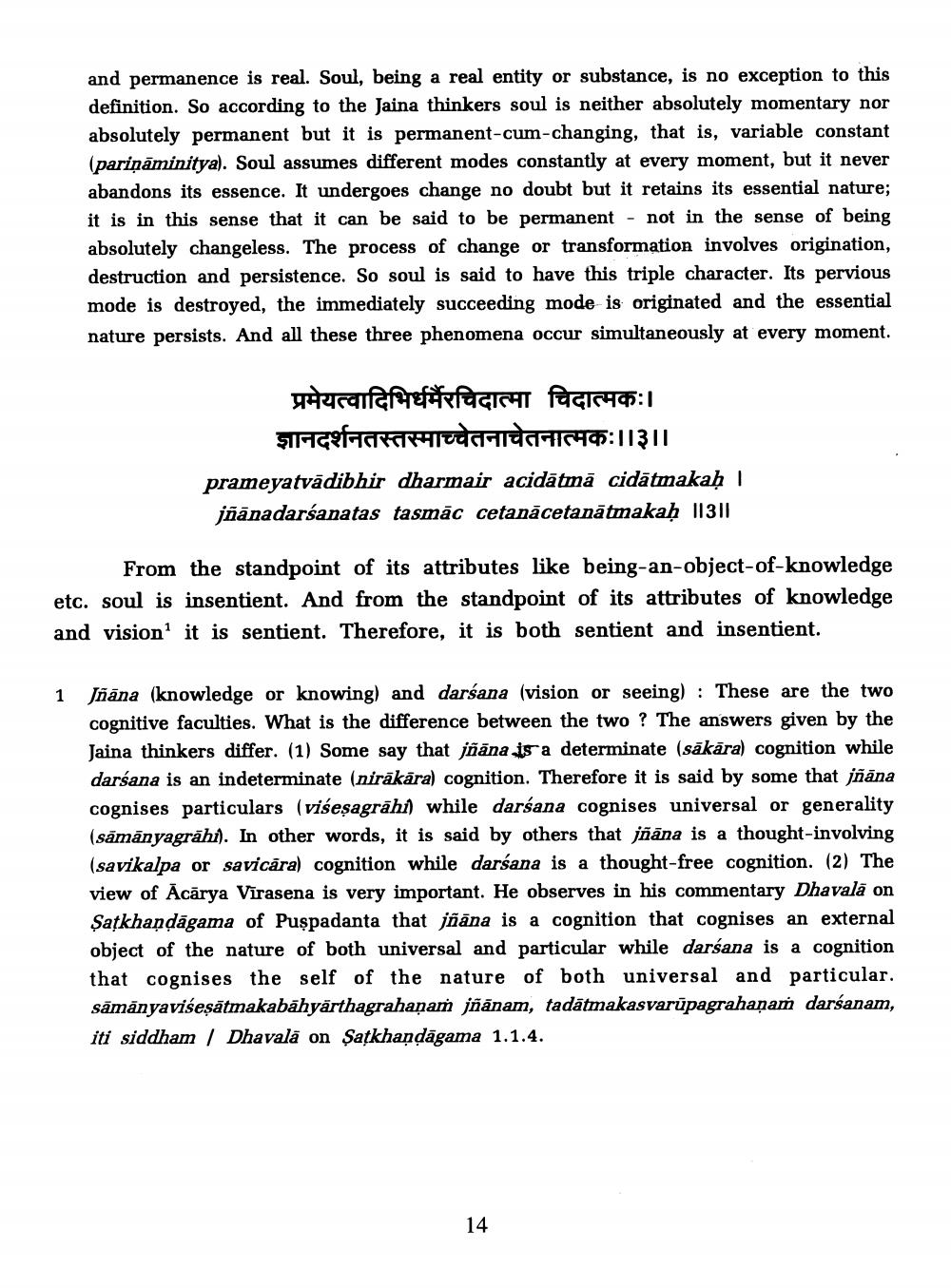________________
and permanence is real. Soul, being a real entity or substance, is no exception to this definition. So according to the Jaina thinkers soul is neither absolutely momentary nor absolutely permanent but it is permanent-cum-changing, that is, variable constant (pariņāminitya). Soul assumes different modes constantly at every moment, but it never abandons its essence. It undergoes change no doubt but it retains its essential nature; it is in this sense that it can be said to be permanent - not in the sense of being absolutely changeless. The process of change or transformation involves origination, destruction and persistence. So soul is said to have this triple character. Its pervious mode is destroyed, the immediately succeeding mode is originated and the essential nature persists. And all these three phenomena occur simultaneously at every moment.
प्रमेयत्वादिभिर्धर्मरचिदात्मा चिदात्मकः।
ज्ञानदर्शनतस्तस्माच्चेतनाचेतनात्मकः।।३।। prameyatvādibhir dharmair acidātmā cidātmakaḥ | jñanadarśanatas tasmăc cetanacetanātmakaḥ 11311
From the standpoint of its attributes like being-an-object-of-knowledge etc. soul is insentient. And from the standpoint of its attributes of knowledge and vision it is sentient. Therefore, it is both sentient and insentient.
1
ñāna (knowledge or knowing) and darśana (vision or seeing) : These are the two cognitive faculties. What is the difference between the two ? The answers given by the Jaina thinkers differ. (1) Some say that jñāna is a determinate (sākāra) cognition while darśana is an indeterminate (nirākāra) cognition. Therefore it is said by some that jñāna cognises particulars (visesagrāhi) while darśana cognises universal or generality (sāmānyagrahi). In other words, it is said by others that jñāna is a thought-involving (savikalpa or savicāra) cognition while darśana is a thought-free cognition. (2) The view of Acārya Virasena is very important. He observes in his commentary Dhavala on Satkhandāgama of Puşpadanta that jñāna is a cognition that cognises an external object of the nature of both universal and particular while darśana is a cognition that cognises the self of the nature of both universal and particular. sāmānyaviśeşātmakabāhyarthagrahaņas jñānam, tadātmakasvarūpagrahaņaṁ darśanam, iti siddham | Dhavalā on Satkhandāgama 1.1.4.
14




